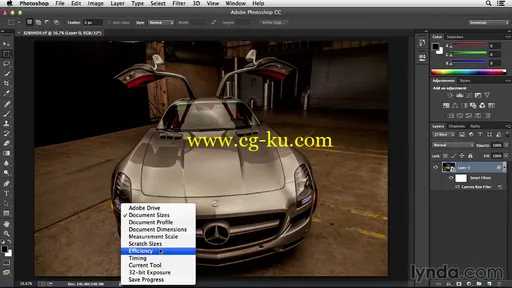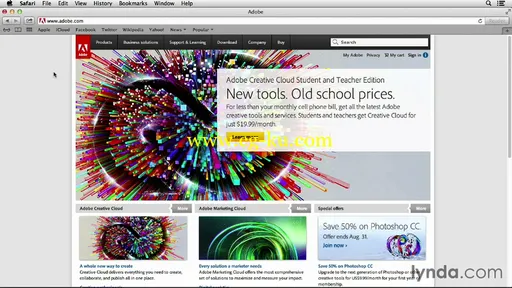
Photoshop Insider Training: Optimizing Photoshop's Performance
English | MP4 | 960 x 540 | AVC ~108 kbps | 15 fps
AAC | 128 Kbps | 48.0 KHz | 1 channel | ~1 hour | 784.7 MB
Genre: Video Tutorial / Adobe Photoshop
Adobe Photoshop greatly benefits from performance tuning. Through careful hardware configuration and preference settings, you can make Photoshop run faster and more efficiently—and a Photoshop system that runs efficiently is one that doesn't interrupt your creative process.
In this installment of Photoshop Insider Training, Photoshop senior product manager Bryan O'Neil Hughes steps through the process of optimizing Photoshop's performance.
The course begins with hardware configuration, from processor and memory recommendations to hard drive and solid-state drive (SSD) advice. Next, learn about the Photoshop preferences that deliver the best balance of performance and flexibility. Finally, discover the best way to move and save files and how other applications and even the health of your disk drive impact Photoshop's processes.
Content:
Introduction
Welcome
Exercise files
1. Optimizing Hardware
Optimizing a GPU and processor
Monitoring memory usage
Taking advantage of scratch disks
Managing cache levels and history states
Looking at Photoshop's GPU-based performance tweaks
Utilizing Save in Background and Auto Save
2. Techniques for Increasing Photoshop's Performance
Working within file-size limitations
Keeping an eye on the Efficiency indicator
Closing unnecessary document windows
Reducing image resolution
Using the Filter Gallery

3. Settings to Speed Up Photoshop
Reducing patterns and brush tips in presets
Minimize or turn off panel preview thumbnails
Setting Maximize PSD and PSB File Compatibility to the Ask option
Turning off the WYSIWYG font preview
Purging Undo, Clipboard, and history states
Dragging between files
Using layers wisely
Saving TIFF files without layers
Exporting without the Clipboard
4. Optimizing the Operating System for Peak Performance
Closing unnecessary applications and startup items
Repairing your drive in Mac OS X
Defragmenting the hard disk in Windows
Updating your operating system
Conclusion
Next steps
Autor: Bryan O'Neil Hughes

发布日期: 2015-05-26